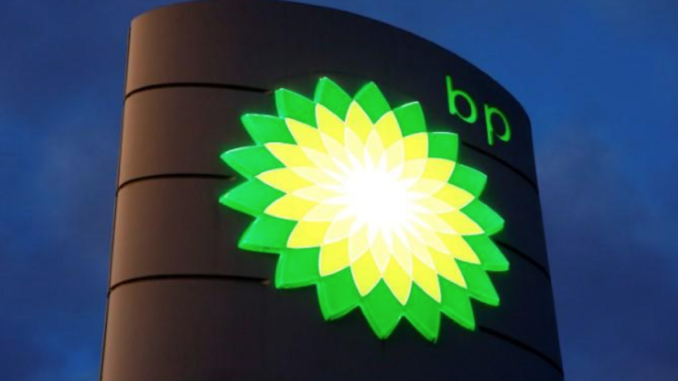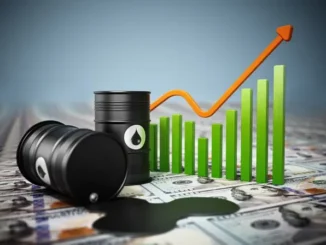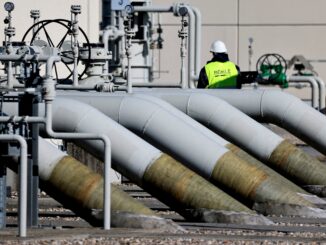
BP Plc said it will cut oil and gas output more slowly this decade after the supply disruption caused by Russia’s invasion of Ukraine boosted prices and delivered record profits.
While the British company said it was doubling down on the transition to cleaner energy with an additional $8 billion of spending to 2030, it will ramp up investments into fossil fuels by the same amount. By the start of the next decade, the company will have higher emissions than previously promised, with oil and gas output down by 25% compared to 2019, compared with its old target for a drop of as much as 40%.
The strategic shift reflects the new reality since President Vladimir Putin’s military attack on Ukraine, and his use of energy supplies as a weapon against Europe. After years of criticism for their role in causing climate change, oil and gas companies now face calls from governments around the world to boost production.
“We’re going to invest more into today’s energy system,” BP Chief Executive Officer Bernard Looney said in an interview on Tuesday. “And that, of course, is a hydrocarbon system.”
BP isn’t alone in adjusting its long-term strategy. Last week, Shell Plc, which also has a goal to reach net-zero emissions by 2050, said it would expand its natural gas business while holding investment steady this year in its renewables unit.
More oil and gas will necessarily mean more carbon emissions, despite the growing urgency to curb planet-warming gases and limit the worst impacts of climate change. Earlier this year, BP’s own economists said the world’s carbon budget is running out. The company now aims to cut the carbon from oil and gas its produces — know as Scope 3 emissions — by 20% to 30% in 2030, down from a previous ambition of as much as a 40% cut. It still it aims to cut its own direct emissions — known as Scope 1 and Scope 2 — by 50% by 2030.
In a strategy update published alongside fourth-quarter earnings, in which BP announced a record 2022 profit of $27.65 billion, the company said it will boost spending in both its fossil fuel and low-carbon businesses. It plans additional investment of as much as $8 billion in each segment by the end of the decade.
For oil and gas, BP will target its spending to boost production as quickly as possible. That would mean investments such as added drilling capacity in the Gulf of Mexico, the North Sea and the Permian shale formation in the US.
“This is about production that can be brought on over the near- to medium-term to help people with the supply issues that they’re facing,” Looney said.
Oil Supercycle
The perceived lack of supply in the oil market is also driving up BP’s view of prices. The company expects crude to average $70 a barrel in 2030, up from the $60 it predicted less than a year ago.
“Its outlook has moved in line with our oil supercycle view,” Christyan Malek, global head of energy strategy at JPMorgan Chase & Co., wrote in a note.
While BP has changed the pace of its transition to clean energy, it says it still funneling a growing share of the cash from its fossil fuel business into low-carbon investments. In 2019, the company spent 3% of its capital in areas other than oil and gas. Last year that rose to 30% and will be more than half in 2030, Looney said.
BP stuck to its goal of developing 50 gigawatts of renewable power by 2030 and to be a leader in offshore wind, despite it delivering the lowest returns among its low-carbon priorities. The company said it targets un-levered returns from renewables of 6% to 8%. That compares with more than 15% from bioenergy as well as convenience and electric-vehicle charging, and double-digit returns from hydrogen.
BP shares rose as much as 4.3% on Tuesday as investors welcomed more generous dividends and share buybacks. Yet the company also come under fire for its fossil fuel plans.
“Apparently, BP sees the windfall profits not as an opportunity to invest more in renewables, but as an encouragement to keep investing in fossil fuels,” said Mark van Baal, founder of activist shareholder group Follow This. “The company doesn’t have a target to slash its total CO2 emissions this decade.”
Share This:
Previous Article
COP28 Chief’s Global Tour Begins With a Defense of Fossil Fuels



